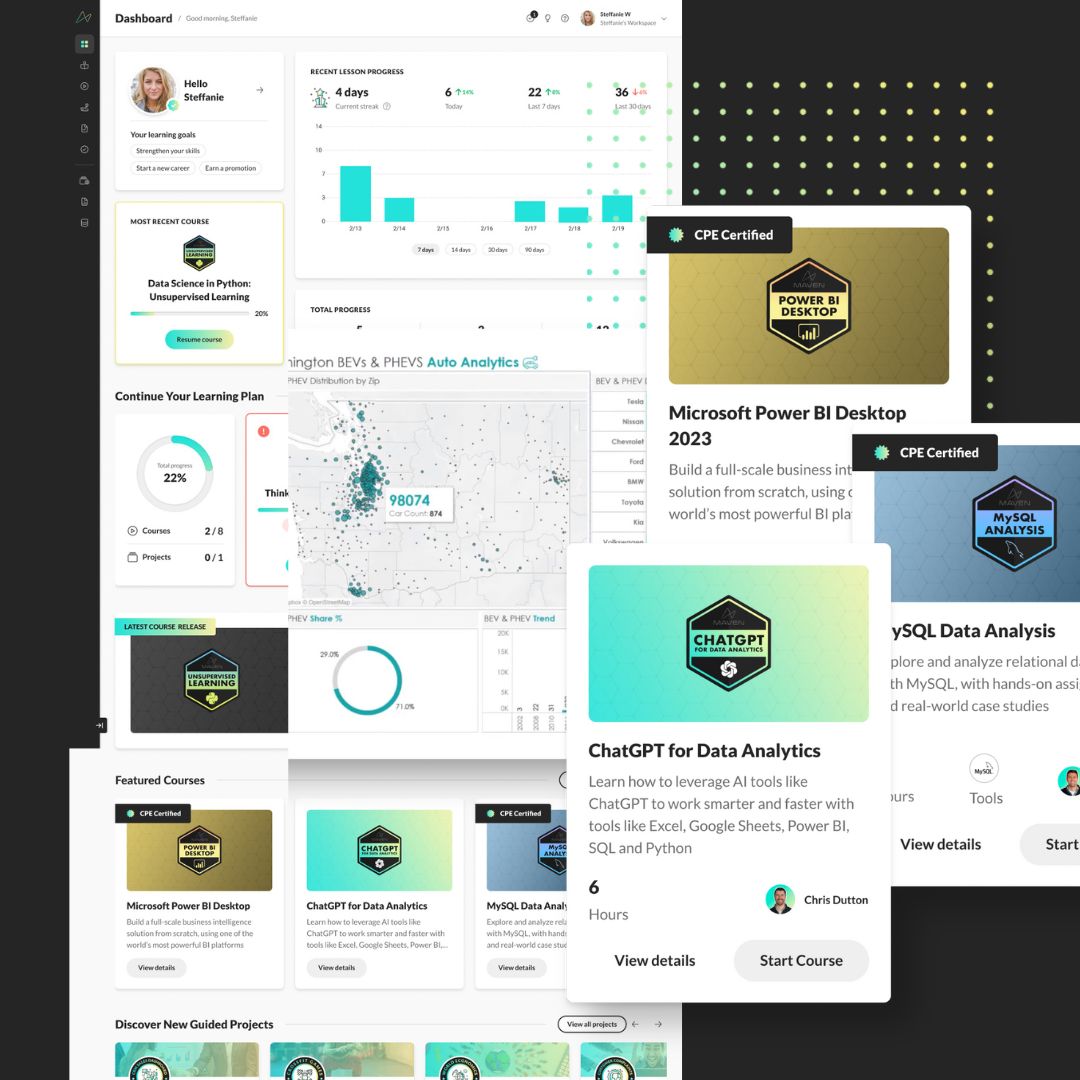Data science is both a mature and constantly evolving field. It has transformed the business landscape, helping companies make smarter, more informed decisions and uncover hidden opportunities.
Despite its prominence, there's a common misconception that data science is only useful for those with "data scientist" in their job title. In reality, grasping basic data science concepts can have huge benefits for those in roles like analyst, data engineer, product manager, and leadership.
Benefits for Analysts
Analysts already thrive on data, but understanding data science concepts can dramatically enhance their impact.
By adopting techniques like exploratory data analysis (EDA), analysts can dive deeper, uncover meaningful insights, and tell compelling stories through visualization. Knowledge of predictive modeling also enables analysts to go beyond reporting past trends and start forecasting future ones.
Additionally, skills like feature engineering, outlier detection, and maintaining data quality become second nature, ensuring more robust and accurate analyses.
Imagine an analyst working on customer retention.
With data science skills, an analyst will be able to think like a data scientist and have the tools to identify which customers are most likely to churn and the factors that drive it. They will also be able to collaborate well with data scientists, providing them with valuable insights that improve the performance of predictive models.
Benefits for Data Engineers
Data engineers play a crucial role in managing and structuring data.
Learning data science helps them understand the bigger picture of how data is utilized in predictive modeling and machine learning workflows. This awareness enhances their ability to build efficient, scalable data pipelines that seamlessly integrate with data science tasks.
Understanding core concepts like feature engineering, model development, and monitoring ensures engineers can effectively collaborate with data scientists, improving workflow efficiency and delivering higher-quality data.
Benefits for Product Managers
For product managers, data science literacy is a powerful asset.
It bridges the gap between business objectives and technical execution, helping managers translate customer needs and business problems into clearly defined analytical solutions. Knowledge of predictive analytics enables product managers to make data-driven decisions confidently, enhancing product strategies and product features.
For instance, a product manager who understands A/B testing and predictive modeling will be able to optimize the product by identifying which changes drive the most impact and forecast their impact. It will also give them the confidence to communicate effectively with both business stakeholders and the data teams crunching the numbers.
Benefits for Business Leaders
Data literacy is becoming essential for effective leadership. Leaders equipped with foundational data science knowledge make better strategic decisions, accurately evaluate projects, and confidently interpret data-driven insights.
A data-savvy leader can foster a culture of experimentation and innovation, unlocking their organization's full potential.
Consider a Chief Product Officer who champions data-driven product solutions & experimentation: this will unlock a feedback loop of data-driven product enhancements that improve key metrics and the user experience.
Accessible Data Science Skills for Everyone
By no means am I arguing that everyone should be able to code up a clustering algorithm from scratch or understand gradient descent, but understanding the basics of the following topics will serve you well in a number of business domains:
Exploratory Data Analysis (EDA) and visualization basics
Fundamentals of predictive modeling (e.g., regression and classification)
Model evaluation metrics (e.g. R2 & Precision)
Essentials of experimentation and A/B testing
Awareness of data ethics and privacy considerations
Practical Tips for Getting Started
For non-technical folks, it’s worth getting started with our Machine Learning Foundations track, which will cover the basics of EDA, visualization, and predictive modelling techniques.
For data professionals, Python for Data Science is a great way to learn how to explore data and build models like a data scientist using the most popular tool in the industry: Python.
Finally, our course on Data & AI Ethics is a must for practitioners and leaders alike, and a solid foundation in Statistics for Data Analysis will deepen your understanding of both data science & analytics.
Conclusion
Data science isn't just for data scientists. It's a powerful toolkit for anyone who interacts with data.
Analysts, data engineers, product managers, and leaders who embrace these skills can enhance their careers and significantly contribute to their organization's success.
There are no sharks in the data science waters, so don’t be afraid to dip your toes in!
UPCOMING LIVE SHOW
Join us for our LIVE Mavens of Data show on Thursday, 7/31 @ 12 pm ET!

Chris Bruehl
Analytics Engineer & Lead Python Instructor
Chris is a Python expert, certified Statistical Business Analyst, and seasoned Data Scientist, having held senior-level roles at large insurance firms and financial service companies. He earned a Masters in Analytics at NC State's Institute for Advanced Analytics, where he founded the IAA Python Programming club.







































